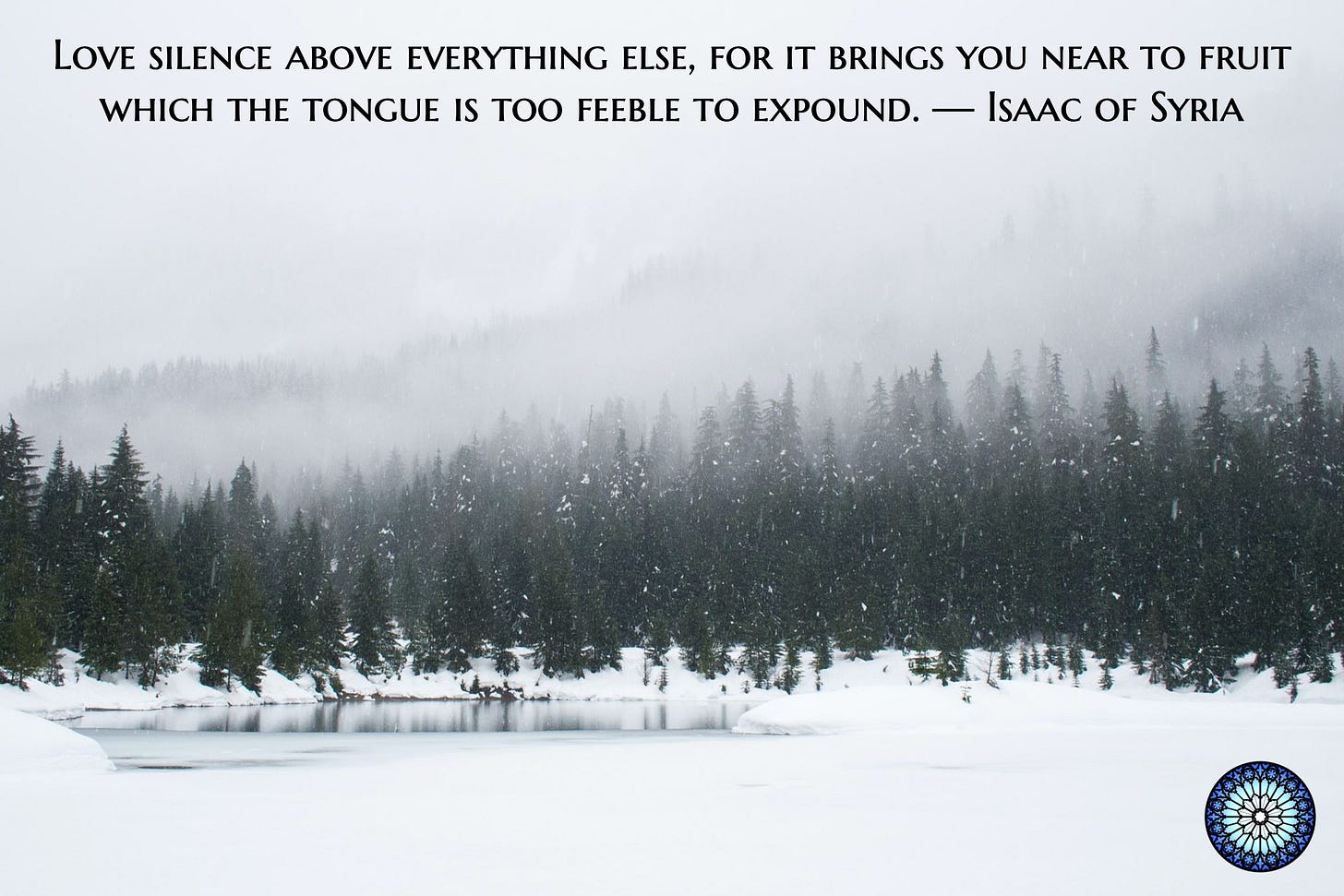Beyond the Tongue
Why Silence is Worthy of Love
Love silence above everything else, for it brings you near to fruit which the tongue is too feeble to expound. — Saint Isaac of Syria
Isaac of Syria, also known as Isaac of Ninevah, was a seventh century bishop whose writings, especially his Ascetical Homilies, are considered major mystical writings of the first millennium. But I will admit, as much as I…




